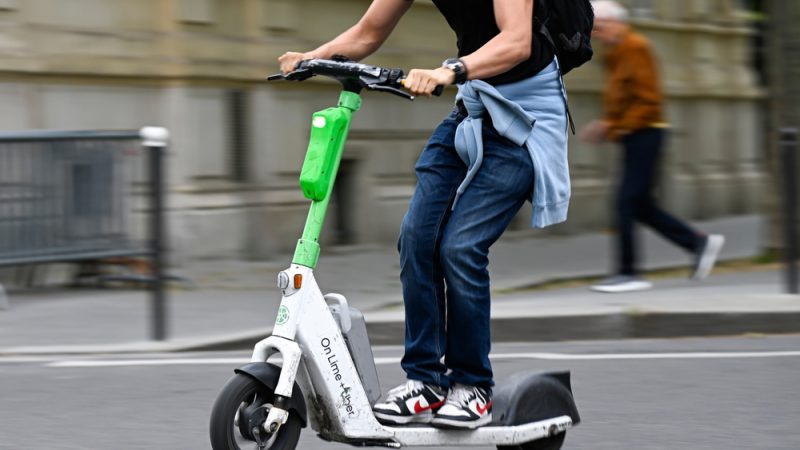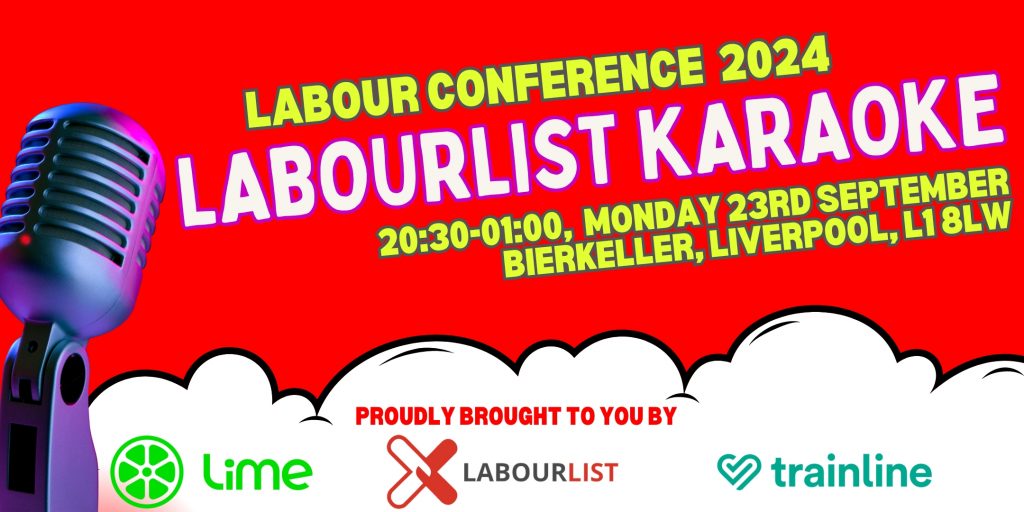
SPONSORED POST
Shared e-bikes have become a critical part of our transport networks, with more than 2 million people riding a Lime e-bike and more than 11.5 million commuter trips taking place in London so far this year alone.
Across the country, more people are choosing to use e-bikes to travel – reducing congestion, improving air quality and health outcomes. This rapid rise in demand is changing the way that people get around our cities and demonstrating how important this new mode is to achieving Labour’s climate and decarbonisation goals.
Record shared e-bikes usage is transforming London’s transport habits
In peak commuting hours, cycling is now the preferred mode for many, with up to 50% of Lime journeys taking place during rush hour. Our riders tell us that shared e-bikes open up their city and make them feel more connected – whether that is the 1 in 3 Lime users who use an e-bike to make first and last mile journeys to access public transport or the Londoners using shared e-bikes to see their family and friends and visit local businesses. Survey data from Opinium finds that half of Londoners aged 18-34 use shared e-bike at least once a week.
More widely, these schemes are providing a gateway to open up healthy and active travel choices, with 20 percent of our users being new to cycling when using Lime for the first time and almost two thirds now cycling more as a result. If we want to reach our shared active travel and transport decarbonisation targets, we need to get more people travelling in a greener, more active way.
Boosting cycling and encouraging mode shift away from cars is crucial to reaching decarbonisation ambitions. The Mayor has set a target for 80 percent of journeys be walked, cycled or taken on public transport by 2041. This cannot be achieved without providing alternatives to private car usage and making cycling safer and more accessible.
Lime can be part of the solution. As London’s largest and longest serving shared e-bikes provider, we are proud to be making a significant contribution towards meeting these targets by providing Londoners with more sustainable and affordable carbon-free transport options. But we are just getting started, and we are determined to continue to work closely with Ministers, Mayors and local authorities across the country to offering a cost-neutral shared micro mobility services.
Addressing parking challenges
We understand the concerns about overcrowded parking bays and pavement obstructions that unprecedented demand for shared e-bikes, particularly in high usage locations such as city centres and transport hubs, have created. We work with local authorities, including 17 partner boroughs in London alone, to designate parking locations and enforce parking rules through GPS technology, mandatory end-trip photos as well as a 250 person strong on-street team who tidy parking bays and remove excess vehicles. Users who break the rules are fined and banned from our service, and we are seeing a month-on-month reduction in reported parking issues, despite rising trip numbers.
The long-term solution to these challenges is adding more locations for cycle parking in our cities, reducing overcrowded parking bays and removing barriers for people to cycle. In the last year alone, Lime has invested over £25 million into our UK services, including a £1 million London parking infrastructure fund. This fund is designed to help our partner local authorities, fund thousands of new cycle parking locations to reallocate space and facilitate mode shift by encouraging cycling in their communities.
As we work together to address on-street challenges caused by the modal shift of demand for shared e-bikes, it is vital that we do not make it harder for people to cycle. We cannot risk reversing recent progress against our ambitious national and local targets to decarbonise our cities.
READ MORE: ‘The three numbers that tell a story of 14 years of Conservative decline – and the challenges ahead’
Shared e-bikes provide a cost-neutral option for Labour councils to meet their ambitions
The new Labour government has rightly put decarbonisation and growth at the heart of its national missions. Labour local authorities across the country are setting progressive targets to reach net zero in the next decade. Lime fully supports these and can play an active role in achieving them by offering a cost-neutral avenue for achieving these ambitions.
We need to have a wider discussion about how we travel and how we allocate space in our towns and cities. To effectively decarbonise, we need empower people in our local communities through sustainable, affordable transport choices that also improve health and connectivity.
The growth in usage of shared e-bike schemes has shown that people are voting with their pedals, and in London we have a successful blueprint of how delivering shared e-bikes schemes in partnership with local authorities can deliver on our shared active travel and climate goals. Now is the time to back shared e-bikes to help deliver healthier and more sustainable communities.
Lime is the world’s leading and most experienced shared electric micro mobility provider. Founded in 2017, we deliver successful shared services in London, Milton Keynes (e-bike and e-scooter), Greater Manchester (e-scooter) and e-bike services in Nottingham and Oxford.
SHARE: If you have anything to share that we should be looking into or publishing about this story – or any other topic involving Labour– contact us (strictly anonymously if you wish) at [email protected].
SUBSCRIBE: Sign up to LabourList’s morning email here for the best briefing on everything Labour, every weekday morning.
DONATE: If you value our work, please donate to become one of our supporters here and help sustain and expand our coverage.
PARTNER: If you or your organisation might be interested in partnering with us on sponsored events or content, email [email protected].





More from LabourList
‘As metro mayors gain power, Labour must tighten political accountability’
Letters to the Editor – week ending 22 February 2026
‘The coastal towns where young people have been left behind by Whitehall’